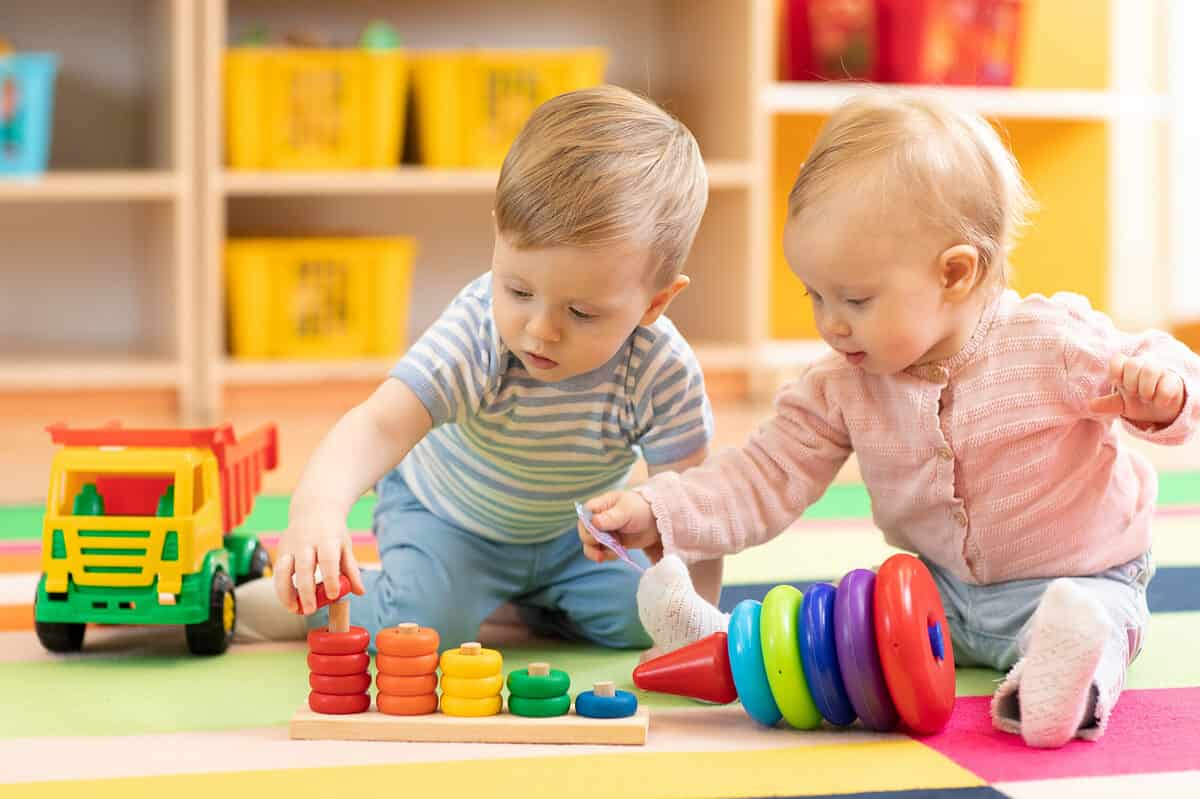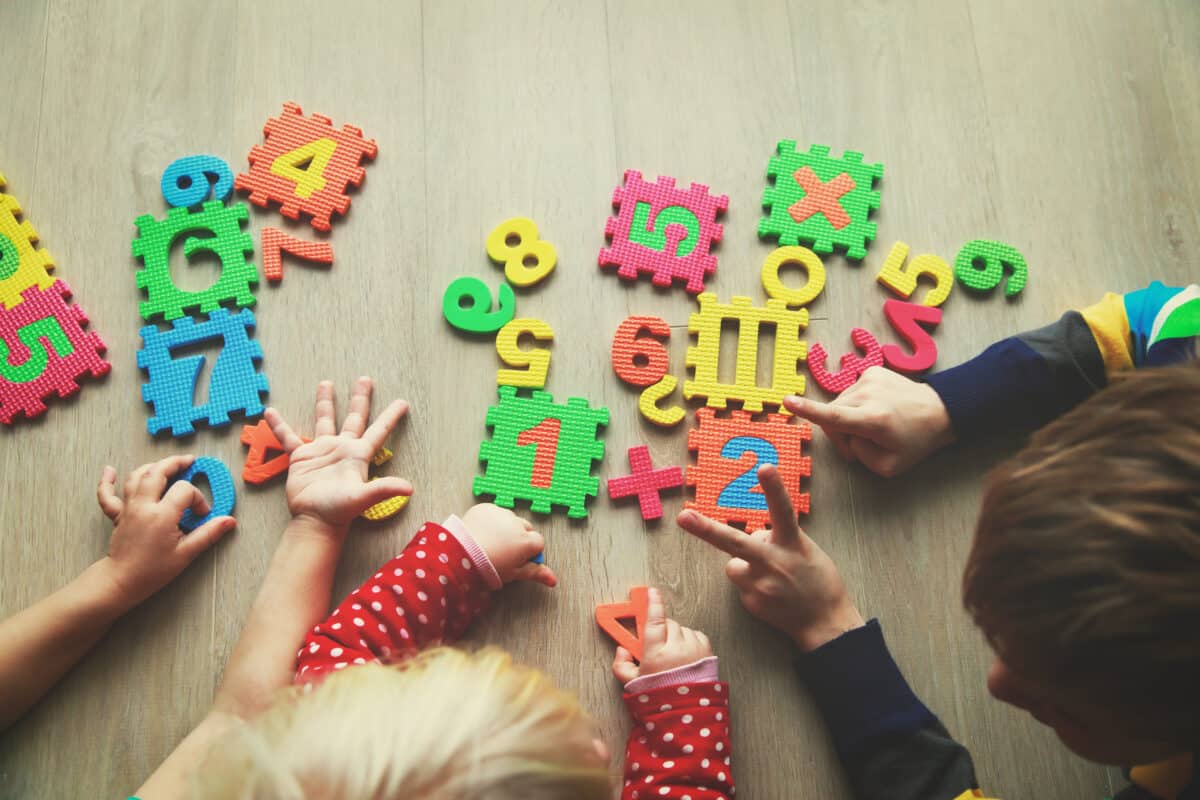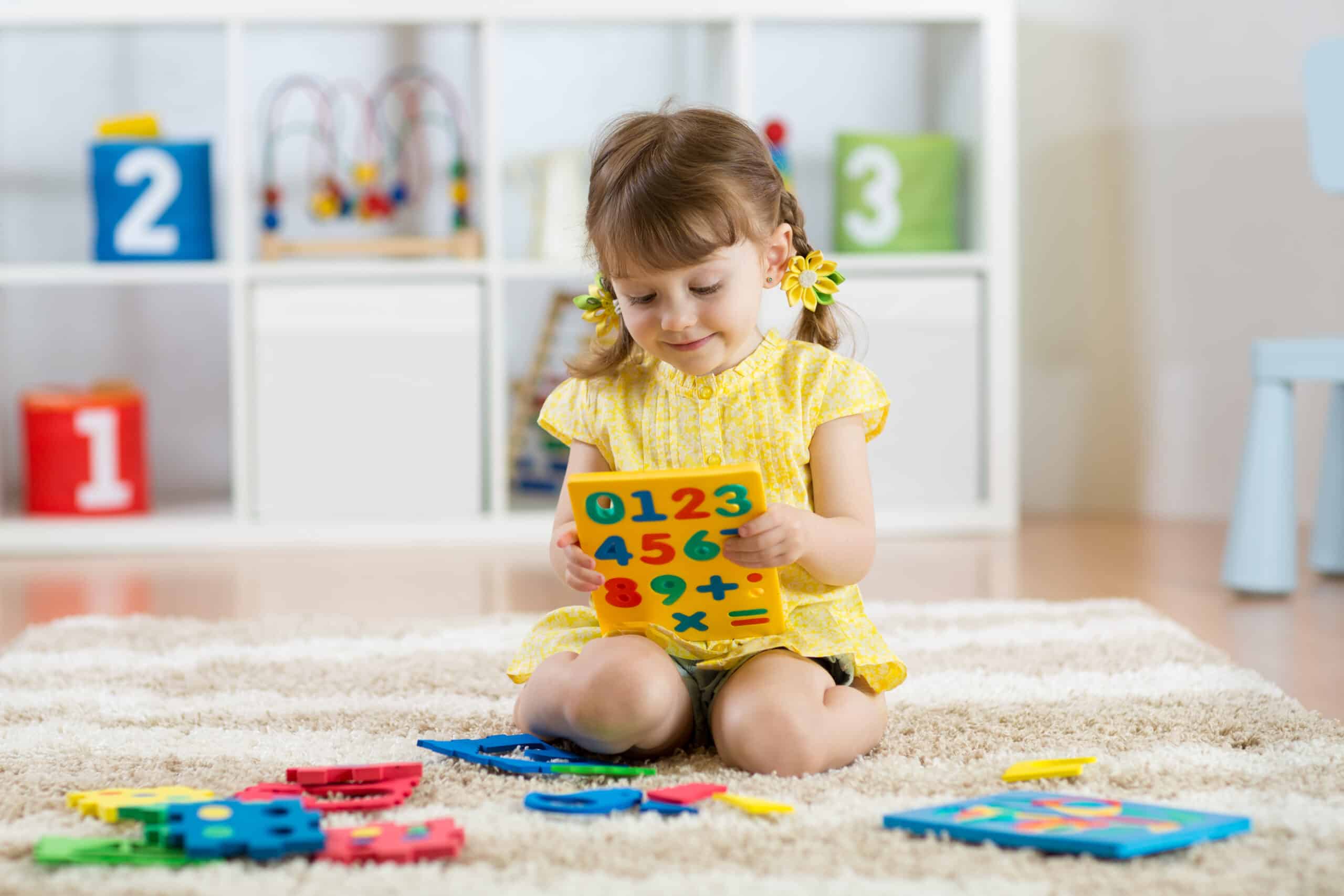There are many milestones that your children will experience as they get older, and one of the most exciting is when they start to learn their numbers. It is a sign that your baby is maturing and that their brain is growing and evolving. The answer to when your toddler will know their numbers will differ based on the child, but you can know what to expect with the guidance we share today.
Key Points of a Toddler Understanding Numbers
- Most children won't have a firm understanding of numbers until a little after a year.
- There are many ways to help your child increase their understanding of numbers. A few include – number-based games, counting around the house, and going around your neighborhood and encouraging them to count.
- Child development will differ so it's important to note that the milestone ages are more rough guides. However, if they miss critical milestones, you should talk to your pediatrician.
The Evolution Of Counting for Your Toddler

As your toddlers go through their first three years, they will learn patterns and sequences.
©Oksana Kuzmina/Shutterstock.com
The short answer to the question of when your toddler will know their numbers is not so simple. In general, your child will have a real understanding of counting and numbers between the ages of 2 and 4 years old.
However, every toddler will have a different journey. Learning their numbers will be exciting to watch as they progress and improve. The easiest way to know what lies ahead for your child is to understand the evolution of counting and how your child forms a relationship with numbers.
Ages 0-12 Months
Children won’t start saying numbers this early, but they will start to understand the meaning of a sequence, which is the building block of counting. The first sequence they will learn is how the day goes from start to end. It begins with waking up, then eating breakfast, then playtime, then a nap, and so on, before eventually reaching bedtime. Parents can help their kids understand the idea of a sequence by saying what comes next. So, you could say something like, “Breakfast is done, now we’ll play for a while, and then we’ll take a short nap.”
Even though they may not comprehend what you are saying, it is never a bad idea to start talking to your baby about numbers. You can do that by counting the number of items on their plate or by reading books to them about numbers throughout the day. You can also simplify things even further by using words like “bigger” and “smaller” when referring to the number of toys or items in an area.
Age 13-24 Months
Your child’s cognitive abilities will improve greatly as they go through every new month, and at some point during this age range, you will hear them start to say random numbers. They likely won’t be in the correct order, but they will say them. They will at least realize that numbers usually dictate how many of something there is in front of them.
By age 2, they will start to gain a deeper understanding of patterns. That might be the colored stripes on their shirt or the colors of their blocks. Parents can start to recite numbers one through ten, and your child may start to absorb the pattern.
Simple patterns may be the best for your child as they learn. You could also turn this into a basic activity where they can explore colors and numbers with drawing or finger painting.
Ages 25-36 Months
At around 25 months, your child will start to gain a solid understanding of simple quantification, aka, one group of objects has more items than the other. They will also have a better understanding of the idea of counting.
By age 30 months, many toddlers will begin to say numbers in the correct sequence, although they won’t be able to count very high. They may also be able to correctly count what they see, like how many people are in the room or how many toys are on the ground. Your child may also have a better concept of time, like when it is getting closer to bedtime. Finally, this is when you will see your toddler holding up the number of fingers that correspond with their age.
At age 34 months, most children are typically able to count to three with ease, and some will even be able to count to 10. Also, they will be able to tell you how many items are in a space without needing to count them out loud.
When your child gets into preschool (ages 3 to 5), they will start to learn numbers on a more complex scale.
How to Encourage Kids to Learn Numbers

Kids learning numbers and counting with fingers.
©NadyaEugene/Shutterstock.com
Whether they have reached the age where a toddler will know their numbers, or you just want to get ahead of the curve, there are several ways that you can encourage them to learn.
Play With Toys With Numbers on Them
Even if they can’t say them yet, you can still teach your kids about the appearance of numbers by giving them toys with numbers on them. There are puzzles, block sets, and bath letters that your kids can play with throughout the day. Applaud them whenever they happen to put those numbers in order.
Count With Them Every Day
Another idea is to count with your kids every day. Make a game out of counting from one to ten, or sing a song that involves numbers. Either way, the repetition will help when they start to know numbers on their own.
Take A Walk And Count Things
Another idea is to take your toddlers on a walk around the block or to the park. While you are there, count the number of bushes, birds, or swings that you see. This exercise will help your kids to learn numbers and the names of objects.
Red Flags to Consider
If your child reaches 30 months of age, they should be able to say at least 50 words, and parents should understand what they are saying half of the time. Since numbers are a part of language, you should hear them utter a few numbers, even if they are not in the correct order.
With that said, there are some red flags that you should be aware of when it comes to counting and language and development, and if you notice them, then you may want to speak to your pediatrician.
Red flags include:
- Your child isn’t even babbling by age 9 months.
- The child isn’t saying any numbers or words by 15 months.
- They aren’t saying consistent numbers or words by 18 months.
- They are not combining words by 24 months.
- You still have trouble understanding your toddler’s speech at 24 months of age.
- Your child shows no interest in communicating at all.
Numbers and Math at Age 4 and Beyond
Your child should know several numbers by the age of 36 months, and some kids will be able to count to 10 by that time, but not all children. However, by age 4, they should be able to count to 10 with ease. After that, you will see other number-related milestones.
Down the line, as your child enters preschool, they will start to learn math concepts, like addition and subtraction. Plus, money and time will start to have more meaning to them, and soon, they will be able to count by twos and fours. The future is bright!
In the end, while every story will be a bit different, eventually, every toddler will know their numbers. Remember to teach and encourage them as they grow, and they will turn into smart and savvy young adults.
The image featured at the top of this post is ©Oksana Kuzmina/Shutterstock.com

